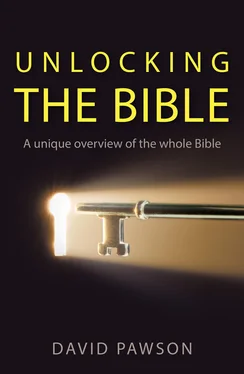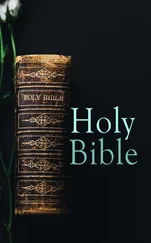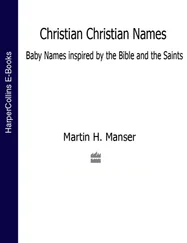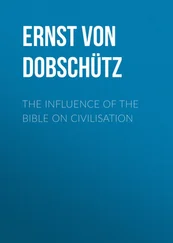With the conquests over, we are given an interesting summary of the Israelites’ activity, including the statement that the Lord hardened the hearts of the nations so that they came against Israel in battle. Clearly their sins were so great that complete extermination was the only solution.
3. DIVIDING
Before progressing any further, we must establish the distinction between occupation and subjugation. Occupation refers to places; subjugation refers to peoples. Whilst the land was theirs, since the people were subjugated, the Israelites still had much land to occupy. Much of the rest of the book is taken up with this process.
The allocation of land was decided by national lottery, leading some to believe that God sanctions the sort of lottery which currently operates in many countries, including Britain. There is, however, an important distinction to be understood. Lotteries are arranged so that humans cannot influence the outcome. Israel chose the lottery specifically so that God could influence the outcome. After all, if God could control the sun, this was nothing to him.
(i) The east bank
The land itself is fascinating, and Joshua records how it was surveyed. The same size as Wales, it is the only green part of the Middle East. The Arabian desert lies to the east, the Negev desert to the south. The rain comes from the Mediterranean.
Moses had promised that the Reubenites, the Gadites and the half-tribe of Manasseh would be given fertile land east of the Jordan, providing they helped in the battle for Canaan. Joshua honoured this pledge.
Throughout the division of the land, the key word was ‘inheritance’. The land was an inheritance for Israel, not just for a while, nor just for the lifetime of the victors, but as a permanent home to pass on to their descendants.
(ii) The west bank
At Gilgal: 2½ tribes
Caleb was one of the spies who had given a positive report about the land when the 12 spies were sent in 45 years before. Now, at the age of 85, we read that he was just as strong as he had been at 40. He approached Joshua and asked that he might be allowed to take the hill country that he had been promised all those years before. Joshua blessed him and gave him the town of Hebron.
The daughters of Manasseh reminded Joshua of Moses’ promise to give them land too. The people of Joseph claimed to be too numerous for the land they were given and so were also allotted forested areas to clear.
The book outlines in considerable detail the towns and villages that were allotted to each tribe, with occasional reference to other matters. We read, for example, of the Israelites’ failure to defeat the enemy when Judah could not dislodge the Jebusites in Jerusalem.
At Shiloh: 8½ tribes
Several tribes remained without allotted land, so each tribe selected men to survey the territory in order to divide it further.
(iii) Special cities
Refuge
There were six special cities of refuge, three on each side of the Jordan, where those guilty of manslaughter could flee when they were chased by those intent on revenge. Within Jewish law there was a distinction between accidental, unintentional killing and premeditated killing. These cities enabled the law to be applied.
Levites
When the land had been allotted, the text makes it clear that the Levites received no land as such, no specific territory. We are told that the Lord was their inheritance – serving God was sufficient for them. Of course, the individual Levites had to live somewhere and towns with pastureland were allotted to them, scattered amongst the other tribes.
(iv) The altar on the east bank
Towards the end of Joshua we are told how a potential tragedy was averted. When the two and a half tribes returned across the Jordan to their territories on the east bank, Joshua urged them to be careful to love God, walk in his ways and obey his commands. However, no sooner had they arrived home than they built an altar at Peor, by the Jordan. The other tribes regarded this as idolatry and immediately declared war. Fortunately, they decided to talk before the first blow was struck. The ‘guilty’ tribes claimed that the new altar was their way of remembering that they were still part of God’s people on the other side of the river. This pacified the concerned tribal leaders and war was avoided.
Joshua’s commitment
The last two chapters are a moving finale to the book. Joshua was conscious of his advancing years, and had served, like Moses, for 40 years. He knew he was going to die soon and so wanted to make provision for the future of the nation.
It is important to note that whilst Moses appointed Joshua as his successor, Joshua did not appoint a successor for himself. This may seem strange, but from then on the job of leadership could not be left to just one man. The leadership needs were different, the people were scattered across the land, and one man could not lead properly with so much ground to cover. So Joshua passed on his commission to them all.
Joshua’s message was very firm: God had promised not only to bless them when they obeyed but to curse them when they disobeyed. God had brought them into the land as he had promised, but they must obey the law if they were to experience his continued favour.
Joshua gave all the credit for Israel’s possession of the land to God. Although he had led the people, he recognized that God had fought for them and they should be grateful to him for their success. He concluded his speech by asking the Israelites to take an oath of loyalty to God.
The final chapter is in an altogether different style. Here Joshua speaks in the first person singular as he does in the previous chapter, but this time ‘I’ means God. His last message is prophecy and is understood as such by the people.
(i) Grace
First God reminds the people of all he has done for them. There is no mention of Joshua’s role.
(ii) Gratitude
Now Joshua speaks, urging the people to fear God, serve him, be faithful and throw away any other gods. Then he speaks for himself and his household, saying, ‘We will serve the Lord.’
The people agree to follow God with Joshua, who sets up a stone of witness. Three times the people declare, ‘We will serve the Lord.’
The last verses of the book record three burials: the burial of Joshua, the burial of Joseph’s bones and the burial of Eleazer. For 40 years they had carried with them a coffin containing Joseph’s bones, because his dying wish was to be buried in the Promised Land. Now at last the bones could be laid to rest in the land Joseph had looked for.
So a triple funeral rounds off this book. We are told that as long as Joshua and his generation of leaders lived, the people were faithful to God. When the next generation grew up, however, things went badly wrong.
It is possible to sum up the lessons of the book of Joshua in two simple phrases:
 Without God they could not have done it.
Without God they could not have done it.
 Without them God would not have done it.
Without them God would not have done it.
These are two very important lessons. It is easy to put all the responsibility on God or to put it all on ourselves. The Bible has a balance: without God we cannot do it, but without us he will not do it. The change of verb is significant – it is not that without us he cannot, it is that without us he will not. If Joshua and the people of Israel had not co-operated with God, their entry into the Promised Land would not have happened, and yet without God and without his intervention, they could not possibly have done it.
Divine intervention
Читать дальше

 Without God they could not have done it.
Without God they could not have done it.









